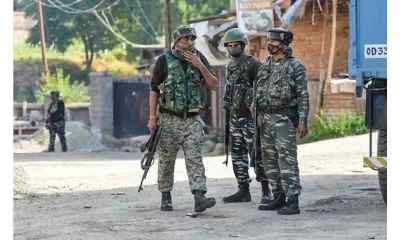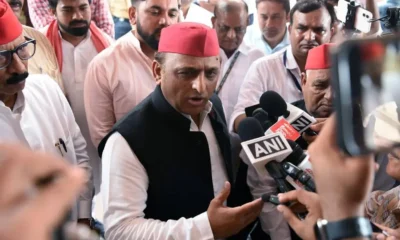As the Covid third wave is expected to come up with more risk of affecting the children, the Central government on Tuesday said the schools – shut since March last year due to pandemic – will only re-open once a significant portion of the population has been vaccinated against Covid-19.
On the question of reopening of schools, the Central government answered that it will consider reopening schools only when the majority of teachers and staff are vaccinated.
What VK Paul has said on School reopening ?
In the official press briefing of the Union health ministry, the Niti Aayog (health) member VK Paul said a lot of things need to be considered while deciding on the reopening schools. This is a question that keeps coming up. He said schools require teachers and children to sit together which gives the virus an opportunity to spread.
Dr Paul’s remarks came in the context of the recent survey of the World Health Organization and AIIMS which revealed that children below the age of 18 years have also developed antibody against Covid-19 and so they may not be impacted by the third wave of the country if any such wave comes.
What is the Covid situation in India ?
India has been witnessing a drop in new Covid cases over the last few weeks after the country hit a global record high with over 4 lakh cases in a day. Several states have started to unlock themselves across the country to reopen the businesses along with the Covid protocol following downward trend of Covid second wave.
What is the status of reopening of schools in India ?
The Central government sources said that the final decision to reopen educational institutes will be taken after reviewing the Covid situation in the country. The govt’s emphasis has been laid on the vaccination of teachers and other staff attached to educational institutions.
The government said the decision on holding classes will not be taken until the situation is better. The main purpose of reopening is to speed up the process of admission and pending examination which means the students will not be asked to attend schools and colleges until the risk of a possible third wave is completely clear.
However, the educational institutions in the country have been closed for more than a year now and as many states have begun their unlock process.
Some states resumed physical classes after the first wave starting from September 21 last year but in the wake of the second wave, classes switched to the online mode. Considering the pandemic situation, states have cancelled annual examinations, national and all state-level board exams. This time too, the government has also cancelled CBSE and ICSE exams for Class 10 and 12 amid concern that the virus might affect children in the third wave.
Keeping in mind the Covid situation, some states – like Telangana – have said they will re-open schools and colleges. Others, like Delhi and Kerala, have said they will continue with virtual classes for now.
Uttar Pradesh
The State Education Department official PN Singh has said that schools can re-open in Uttar Pradesh from July 1. However, students will not be called to school and only teachers will come and take classes from school.
As per the state’s new guidelines, teachers and staff of basic secondary and higher secondary schools are allowed to attend schools for administrative work.
Bihar
According to Education Minister Vijay Kumar Chaudhary, Bihar may also re-open schools from June 1 onwards because both the state government and education department is in favour of opening schools from July
Delhi
Schools will continue to function in the online mode amid the ongoing Covid pandemic in Delhi.
Madhya Pradesh
The process of admission in Madhya Pradesh has started. However, its Education Minister Inder Singh Parmar has said that a collective decision regarding reopening is yet to be taken.
Read Also: Man arrested for stealing his boss’ cars in Faridabad, says he made duplicate car keys to steal
Telangana
The Telangana government on Thursday announced that all schools, colleges and other educational institutions can reopen in the state from July 1.


 India News4 hours ago
India News4 hours ago
 LATEST SPORTS NEWS3 hours ago
LATEST SPORTS NEWS3 hours ago
 India News3 hours ago
India News3 hours ago
 India News3 hours ago
India News3 hours ago
















